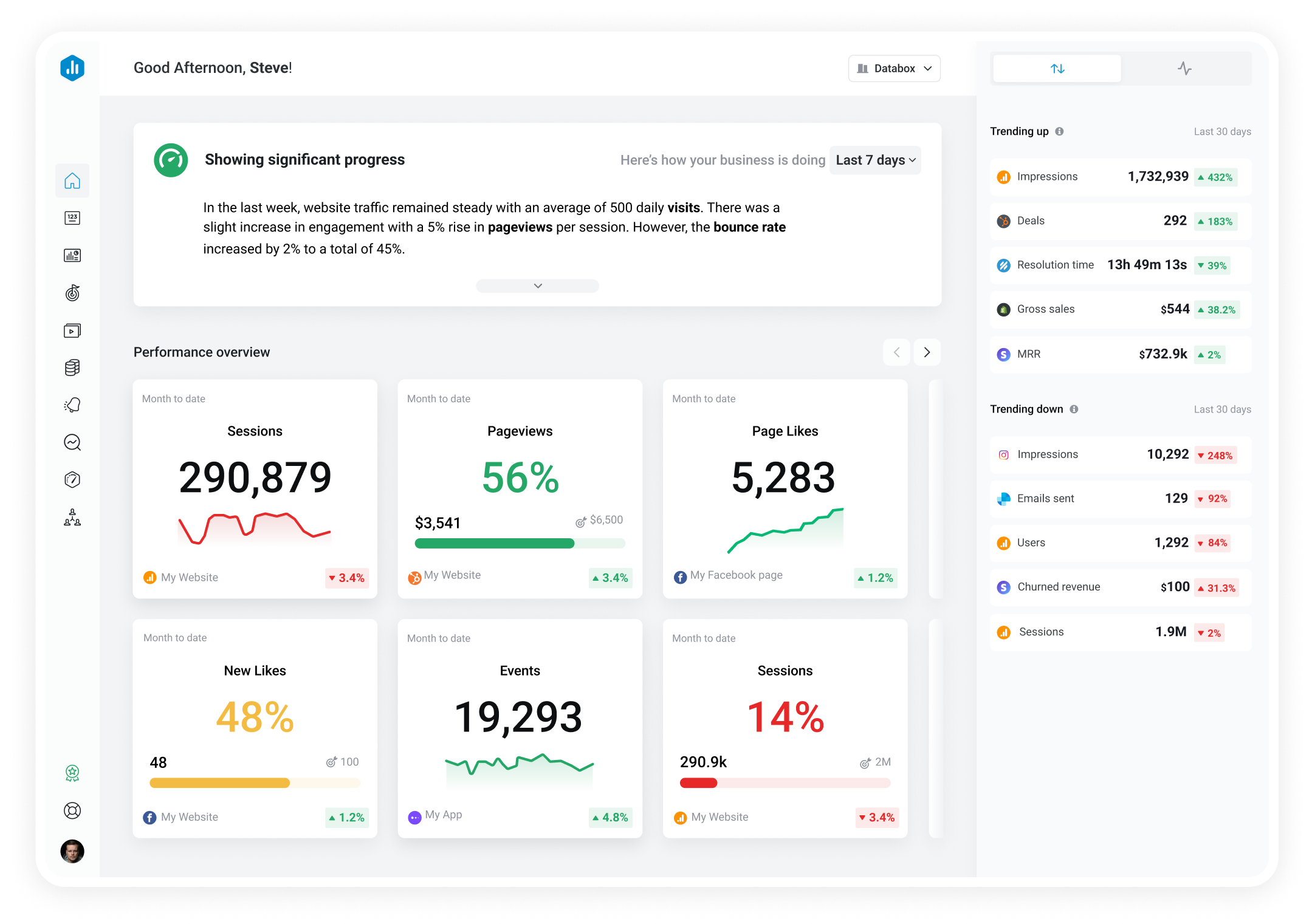Track all of your key business metrics from one screen
GET STARTED
 QuickBooks
Net Other Income (Cash)
QuickBooks
Net Other Income (Cash) Net Other Income (Cash) is a financial metric that represents the total income earned by a company from sources other than its core operations, after deducting any expenses associated with those sources.
With Databox you can track all your metrics from various data sources in one place.

Used to show a simple Metric or to draw attention to one key number.
Databox is a business analytics software that allows you to track and visualize your most important metrics from any data source in one centralized platform.
To track Net Other Income (Cash) using Databox, follow these steps:
 Goals
Goals Scorecards
Scorecards Metric Digest
Metric Digest Metric Builder
Metric Builder Data Calculations
Data Calculations Performance Screen
Performance ScreenStay on top of your company’s financial health with real-time P&L, balance sheet, and cash flow insights from QuickBooks. Built for business leaders, finance teams, and stakeholders to support smarter planning and decision-making.

